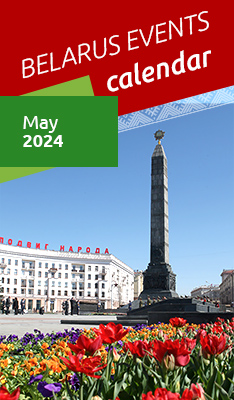Events
Lukashenko: Our sacred and moral duty is to disallow Nazism rehabilitation
MINSK, 8 June (BelTA) – The sacred and moral duty of the living people before those killed and the bounden duty before the coming generations is to prevent the rehabilitation of the Nazis and their associates, Belarus President Alexander Lukashenko said at the ceremony of laying a time capsule at the Trostenets Memorial on 8 June, BelTA has learned.
“It should seem that the genocide should have been stuck in the memory of humankind for ever and give lifelong immunity against the Fascism virus. Unfortunately it did not happen. Today the Fascism starts raising its head again. Some political forces try to whitewash the Nazism, use the Nazi emblems, symbols and slogans. They try to rewritten the history of the WWII in their vested interests,” the head of state said.
“Some foreign politicians convince us that it is the right to freedom, the right to liberty and the exercise in democracy. We do not accept such democracy,” the Belarusian leader stressed.
Alexander Lukashenko is confident that the countries who disregard the lessons of history, who take a relaxed attitude towards the manifestations of racial and ethnic intolerance, propaganda of the ideas of the superiority of one nation over the others are doomed to the repetition of the tragedy, but this time on their land and in their homes.
“We must preserve and pass to our descendants the memory of the victims of the WWII which atrocities should never repeat. Our sacred motto is No one is Buried in Oblivion, Nothing is Forgotten. That is why we have taken a decision to create this memorial in Trostenets,” the head of state said.
The time capsule at the site of the memorial says that the memorial should serve as a reminder to the future generations about the tragic events that should never repeat. The memorial will be a symbol of pain and grief for the people of different nationalities and denominations, a warning against the revival of psychic ideas of the superiority of one over the others.
Out of 260 concentration camps the Nazis set up in Belarus Trostenets was the biggest place of mass killings during the years of occupation. It operated in 1941-1943. In the number of the people killed the camp became the fourth biggest after Oswiecim, Majdanek and Treblinka. Thousands of people were killed there, including Soviet prisoners of war, Jews of Belarus and West-European states, partisans and undergrounders, Minsk residents. Trostenets comprised several places of mass killings: the lands of Blagovshchina and Shashkovka, and the Trostenets camp.
| Su | Mo | Tu | We | Th | Fr | Sa |
|---|---|---|---|---|---|---|







 print version
print version make home page
make home page add to bookmarks
add to bookmarks

